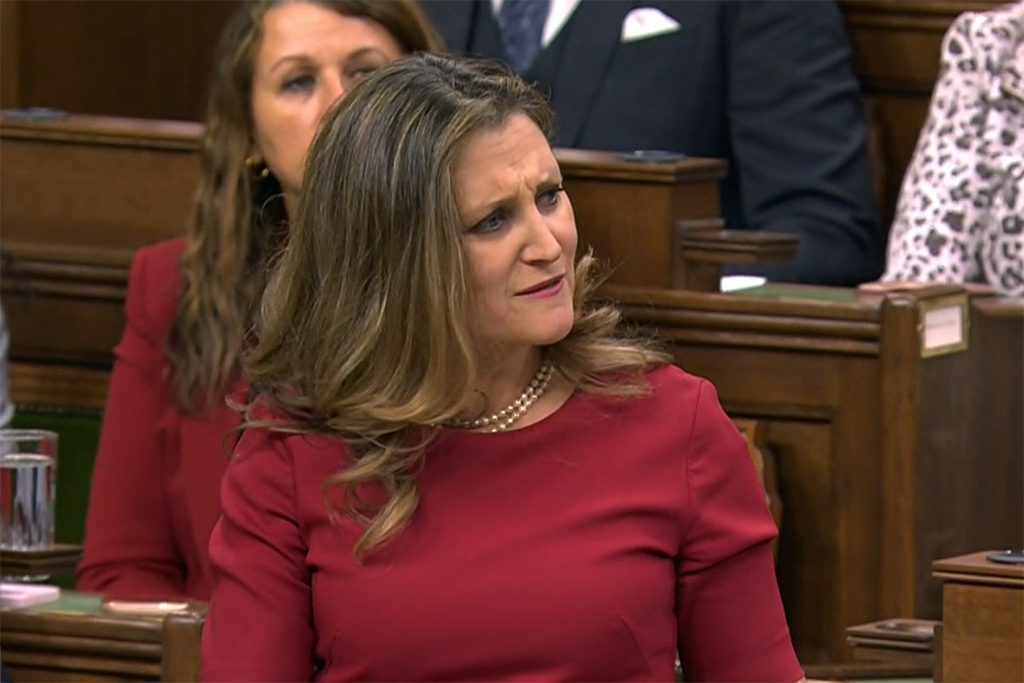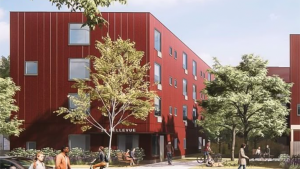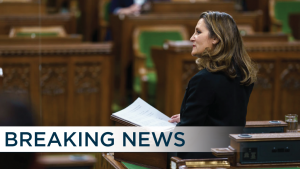Federal Minister of Finance Chrystia Freeland announced a modest set of new government programs to support homebuilding today (Nov. 21), with significant new financing through a renamed rental housing plan but most of the other housing pledges reiterating previous announcements.
Freedland also indicated the government would remove barriers to labour mobility within Canada, with priority for construction workers and health care workers, and would prioritize skilled tradespeople for permanent residency.
Delivering her Fall Economic Statement in the House of Commons, Freeland said Canada’s finances remain sustainable, with social supports to continue to lift families out of poverty and support the middle class combined with the new housing initiatives.
“Canada maintains both the lowest deficit and debt-to-GDP ratio in the G7, and with new reductions in government spending, this Fall Economic Statement builds on the $15 billion in public service spending reductions that I announced in the spring,” said Freeland.
The federal deficit is projected to be $40 billion in 2023-24, down slightly from the March federal budget.
The statement included an additional $15 billion in new loans for the Apartment Construction Loan Program, bringing the program’s total to over $40 billion in loan funding.
The program was previously known as the Rental Construction Financing Initiative.
The new spending will support more than 30,000 additional new homes across Canada, said Freeland, bringing the program’s total contribution to over 101,000 new homes by 2031-32.
Another significant new housing bump was a pledge of an additional $1 billion over three years, starting in 2025-26, for the Affordable Housing Fund. The spending will support non-profit, co-op and public housing providers to build more than 7,000 new homes by 2028, Freeland said.
She stated the government intends to announce reforms to the Affordable Housing Fund and the Apartment Construction Loan Program in early 2024 to make them more accessible and with faster approvals.
There will also be a boost of $309.3 million for the Co-operative Housing Development Program, which was announced in Budget 2022.
Freeland also announced the planned creation of a new Department of Housing, Infrastructure and Communities, to replace Infrastructure Canada. Through legislation, the government intends to “clarify the department’s powers, duties and functions as the federal lead for improving housing outcomes and enhancing public infrastructure,” the economic statement indicated.
On Nov. 7, the federal government announced that six surplus federal properties will be developed into more than 2,800 new homes in Edmonton, Calgary, St. John’s and Ottawa.
Turning to labour mobility, including that of construction workers, the finance minister pledged the federal government will leverage federal transfers, and other funding, to encourage provinces and territories to address regulations that inhibit the movement of workers in the targeted sectors.
The government will work with provinces and territories towards full interprovincial labour mobility for construction and health care workers and will also expand on the success of the Red Seal Program to improve the mobility of tradespeople and eliminate further barriers, such as duplicative credential recognition.
The government also outlined several new policies designed to crack down on short-term rentals to boost long-term housing supply. Included is a proposed $50 million in spending over three years, starting in 2024-25, to support municipal enforcement of restrictions on short-term rentals.
A new Canadian Mortgage Charter is intended to help mortgage holders in financial difficulty on their principal residence to obtain mortgage relief.
The economic statement also offered an overview of recent government supports for green economic projects. Among them, the expansion of eligibility for the Clean Technology and Clean Electricity Investment Tax Credits to support using waste biomass to generate heat and electricity will be the subject of consultations next summer leading to draft legislation, with legislation expected to be introduced next fall.
Among recent successes in the industrial sector was the announcement that Umicore, in Loyalist, Ont., will receive federal and provincial investments of $551.3 million and $424.6 million, respectively, to support a $2.76 billion project to build a manufacturing facility of cathode active materials. That was announced this fall.
Also this fall, Freeland noted, the government announced that E-One Moli Energy would be building a lithium-ion battery cell manufacturing facility in Maple Ridge, B.C. with federal and provincial spending of $204.5 million and $80 million, respectively.
Freeland also announced that the Canada Growth Fund will be the principal federal body issuing carbon contracts for “difference,” which is a pricing mechanism for contracts on the future price of carbon. The Growth Fund will allocate, on a priority basis, up to $7 billion of its current $15 billion in capital to issue all forms of contracts for difference and offtake agreements.











Recent Comments
comments for this post are closed